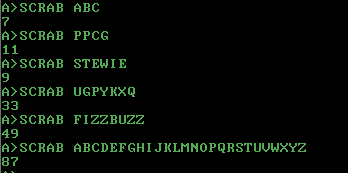Challenge:
Take a string of upper or lower case letters as input (optional), and calculate the score that string would get in a game of Scrabble in English.
Rules:
The score of each letter is as follows (use this even if there are other versions of the game):
1 point: E, A, I, O, N, R, T, L, S, U
2 points: D, G
3 points: B, C, M, P
4 points: F, H, V, W, Y
5 points: K
8 points: J, X
10 points: Q, Z
The score of a string is simply the sum of the scores of each of the letters used. You may assume that you have plenty of tiles available, so long words, and words with many of the same letters are valid input.
Test cases:
ABC -> 7
PPCG -> 11
STEWIE -> 9
UGPYKXQ -> 33
FIZZBUZZ -> 49
ABCDEFGHIJKLMNOPQRSTUVWXYZ -> 87
The shortest answer in each language wins! The input and output formats are flexible, so you may take the input as an array of characters (upper or lower case) if you want.

